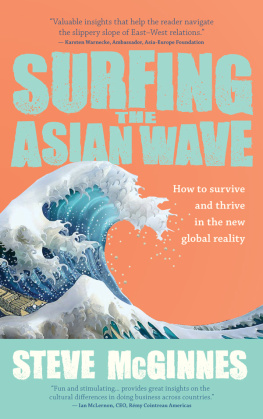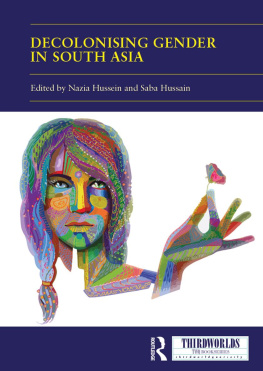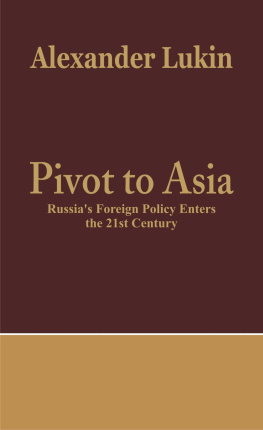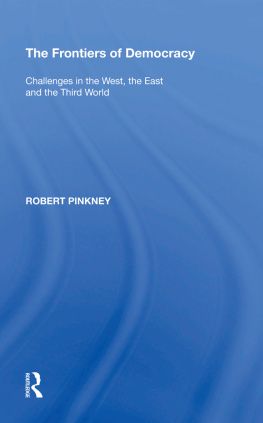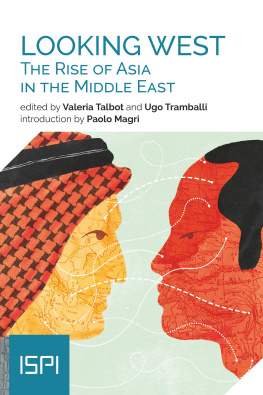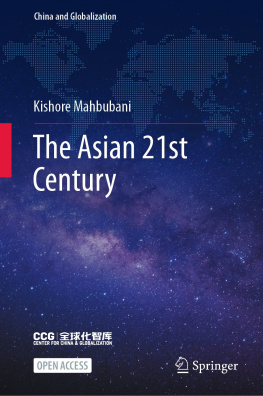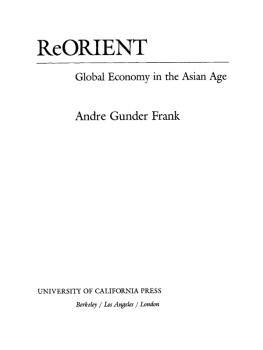Contents
Guide

2020 Steve McGinnes
Published in 2020 by Marshall Cavendish Business
An imprint of Marshall Cavendish International

All rights reserved
No part of this publication may be reproduced, stored in a retrieval system or transmitted, in any form or by any means, electronic, mechanical, photocopying, recording or otherwise, without the prior permission of the copyright owner. Requests for permission should be addressed to the Publisher, Marshall Cavendish International (Asia) Private Limited, 1 New Industrial Road, Singapore 536196.
Tel: (65) 6213 9300. Email:
Website: www.marshallcavendish.com/genref
The publisher makes no representation or warranties with respect to the contents of this book, and specifically disclaims any implied warranties or merchantability or fitness for any particular purpose, and shall in no event be liable for any loss of profit or any other commercial damage, including but not limited to special, incidental, consequential, or other damages.
Other Marshall Cavendish Offices:
Marshall Cavendish Corporation, 99 White Plains Road, Tarrytown NY 105919001, USA Marshall Cavendish International (Thailand) Co Ltd, 253 Asoke, 12th Floor, Sukhumvit 21 Road, Klongtoey Nua, Wattana, Bangkok 10110, Thailand Marshall Cavendish (Malaysia) Sdn Bhd, Times Subang, Lot 46, Subang Hi-Tech Industrial Park, Batu Tiga, 40000 Shah Alam, Selangor Darul Ehsan, Malaysia.
Marshall Cavendish is a registered trademark of Times Publishing Limited
National Library Board, Singapore Cataloguing in Publication Data
Name(s): McGinnes, Steve.
Title: Surfing the Asian Wave : How to survive and thrive in the new global reality / Steve McGinnes.
Description: Singapore : Marshall Cavendish Business, 2020.
Identifier(s): OCN 1124641054 | e-ISBN: 978 981 4868 84 6
Subject(s): LCSH: Corporate cultureAsia. | Business etiquetteAsia. | Success in businessAsia.
Classification: DDC 650.1095dc23
Printed in Singapore
For John,
who always wanted me to see the things
that he never got the chance to.
I love and miss you.
And the end of the fight is tombstone white
with the name of the late deceased,
and the epitaph drear: A fool lies here
who tried to hustle the East.
Rudyard Kipling
Contents
Introduction
Just before a tidal wave hits, the tide gets pulled way out. The water just disappears.
I read about a young girl standing on a beach just before a tsunami. She watched the water disappear and she knew what it meant. She wasnt an expert, but she had learnt a little about tidal waves at school.
Whilst other people on the beach just watched, she guided her family and friends to higher ground. Having just enough relevant, actionable information, at the right time thats what counts.
Dane, consultancy director, 20-year Asia veteran
Our biggest challenges and greatest opportunities are global.
The climate catastrophe that will impact us all, a potential economic collapse that will destroy businesses and erase the savings of millions, the rise of political and religious extremism all these are global problems that can only be solved by cross-border, cross-country and cross-cultural solutions.
The better we understand each other, the more likely we are to find solutions together to prevent these catastrophes.
At the same time, our greatest chances for success, reward and growth as countries, businesses and individuals are also global. Opportunities now lie beyond national borders and cultures. Your future success will be global.
But we cant succeed at what we dont understand.
This is not an academic study, travel guide or traditional business book. It is a book that addresses and prepares you for one of the single biggest changes in human history. A change that if you ride it, could lift you to the top of your chosen field, or ignored will rush right over the top of you and leave you gasping for air.
The world-changing collision of Asia and the West is happening. Understanding how to navigate, act and lead in the new converged world will become the most valuable, sought-after and useful skill that any 21st-century professional can possess.
How have we got here? Technology has brought humanity together, yet simultaneously isolates us as individuals. Each of us has a public social media voice through which we can speak to millions, whilst the worlds mass media is tightly controlled, promoting the agenda of a handful of moguls who operate far beyond national borders. The global population continues to grow worryingly, and huge demographic shifts put pressure on governments to support those too young or too old to work. We subject the planet to unprecedented abuse, whilst simultaneously spending more than ever on our own personal health and well-being.
Yet underneath it all, like two giant tectonic plates, the West and Asia are crashing together. As the ground buckles beneath us, all of the activity, progress, fear and hope on the surface will be impacted. Mountains will shake, buildings will fall and tidal waves will hit the coastlines of our cultural and economic islands.
These are unprecedented shifts, and we simply cannot predict exactly what is going to happen. But we can be prepared for it.
Business leaders are trying to stay ahead of the waves. The Economist Intelligence Unit reported that the majority of the CEOs they questioned were now looking to emerging markets for their new customers. Some 71% of them intended to have more people on the ground in new countries, and in the next three years, 78% intended to have more cross-cultural teams.
The biggest blocker to their future success? They believed it was cross-cultural misunderstandings.
The real challenge is the unknown unknowns. Things that we are so ignorant about that we dont know they are things we are ignorant about. If we know that we dont know something, we can at least try to find out about it. If we dont know that we dont know, well, then we are simply lost.
Simon, finance director, 15 years in Asia
As with any large sociological, cultural or economic shift, there are pockets of resistance, pushback and challenge.
Seen up-close, these counter-movements may seem as though they are themselves major forces for change, e.g. the government initiatives, legislation and popular movements that are in opposition to globalisation, pushing back on the mass movements of people and the economic interdependency of East and West. China and the USs trade tariff bickering, politicians taking a populist anti-immigration stance and anti-globalisation protesters all make a lot of noise, for a while, but slowly and quietly things continue on the same path of convergence as before.
Despite his advisers telling him otherwise, Canute was unable to hold back the tide. Neither will those opposing economic globalisation be able to hold back what is the tide of the times. There are people who hope to break the interdependence of the worlds economies. And some even advocate decoupling the worlds two largest economies. Such intentions, which have become evident since the trade frictions escalated between China and the United States, are trying to halt the momentum of economic globalisation. But history will ultimately prove them foolish.

